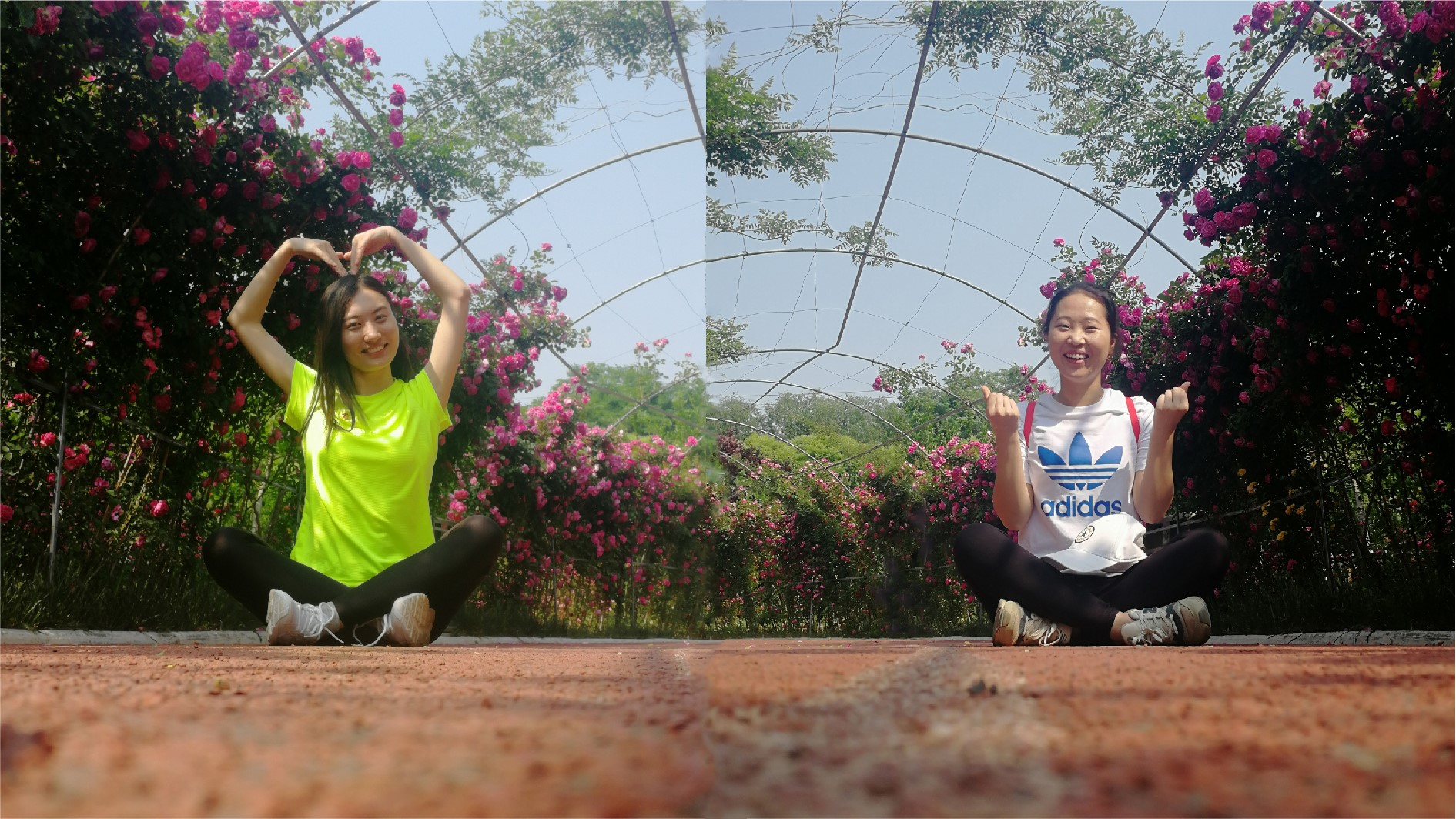The collaborative work of Meiqi Li and Yaning Li from the Department of Biomedical Engineering of the College of Future Technology recently won the special prize of the May 4th Youth Science Award in 28th "Challenge Cup" competition of Peking University, demonstrating the outstanding scientific research and exploration ability of students from the College of Future Technology.
Meiqi Li and Yaning Li are doctoral students in the Department of Biomedical Engineering at the College of Future Technology, respectively, in their third and first year. They are primarily working on polarization super-resolution imaging under the supervision of Professor Peng Xi. In their work "Polarization Structured Illumination Microscopy", they proposed the polarization super-resolution structured illumination microscopy that combines polarization fluorescence microscopy and structured illumination microscopy to achieve spatial super-resolution imaging while resolving the orientation information of fluorescence dipoles. Professor Xi was the instructor for this technology, which earned the special prize of the May 4th Youth Science Award in the "Challenge Cup" competition.
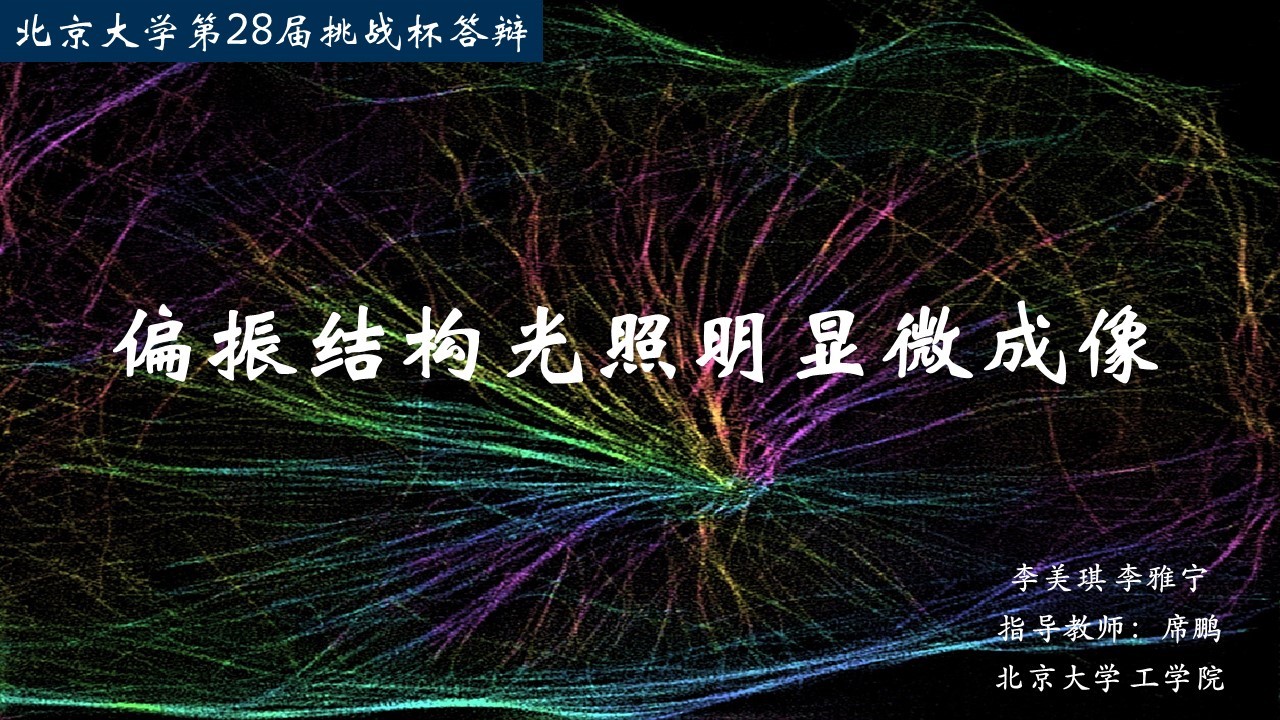
Challenge Cup school audit online defense scene.
The background is imaging result of polarization structured illumination microscopy.
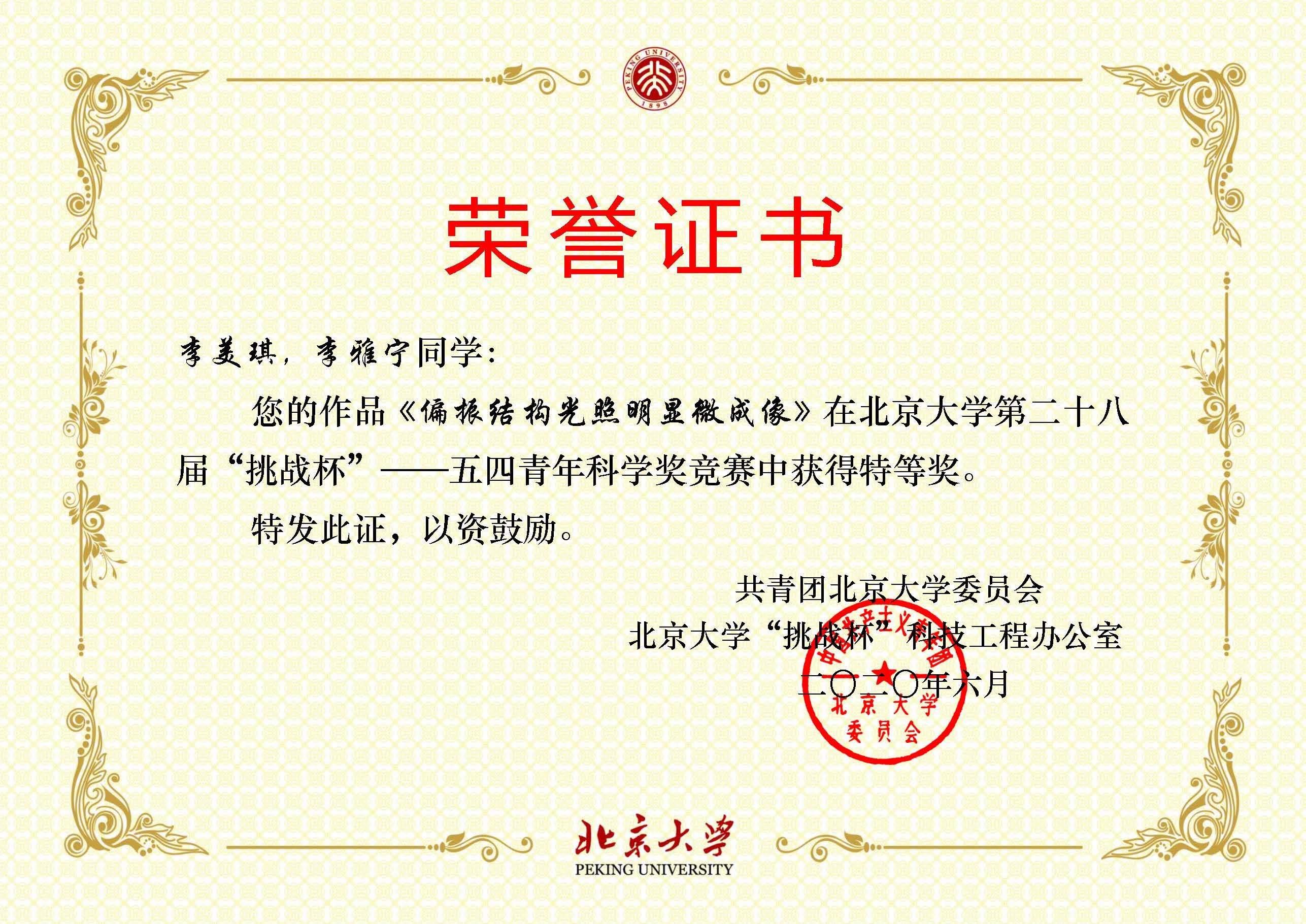
Award certificate.
At the cellular and molecular levels, fluorescence microscope is an essential tool for biological research. The fluorescence polarization microscope can provide orientation information of fluorescence dipoles to study the protein structure and track its dynamic changes. Traditional fluorescence polarization microscopy, on the other hand, is limited by the diffraction theory of light and hence cannot get fine subcellular features. Fortunately, super-resolution microscopy, which has developed rapidly in recent years, is capable of capturing complicated physiological events in living cells as well as investigating molecular structures at the sub-diffraction limit scale. Therefore, if fluorescence polarization imaging can be achieved at a super-resolution level, it will undoubtedly aid the advancement of life science.
Structured illumination microscopy, the most popular super-resolution fluorescence microscopy, is skillfully combined with fluorescence polarization imaging in the work, and polarization structured illumination microscopy is proposed to realize super-resolution imaging in spatial and angular multi-dimension space. Its greatest benefit is that it can be directly applied to commercial and laboratory-built microscope with various modes of structured illumination, which endows the resolution ability of dipole orientation of structured illumination super-resolution microscope, helping biologists to obtain more information and greatly facilitating biological research.
There is no commercial fluorescence polarization microscope accessible due to the relatively late development of fluorescence polarization microscopy, which severely limits the application of fluorescence polarization technology. This work also makes the super-resolution fluorescence polarization microscope "commercialization", advancing the development of fluorescence polarization microscopy in the field of super-resolution imaging significantly. Nature Communications (link: https://www.nature.com/articles/s41467-019-12681-w) published the relevant findings.
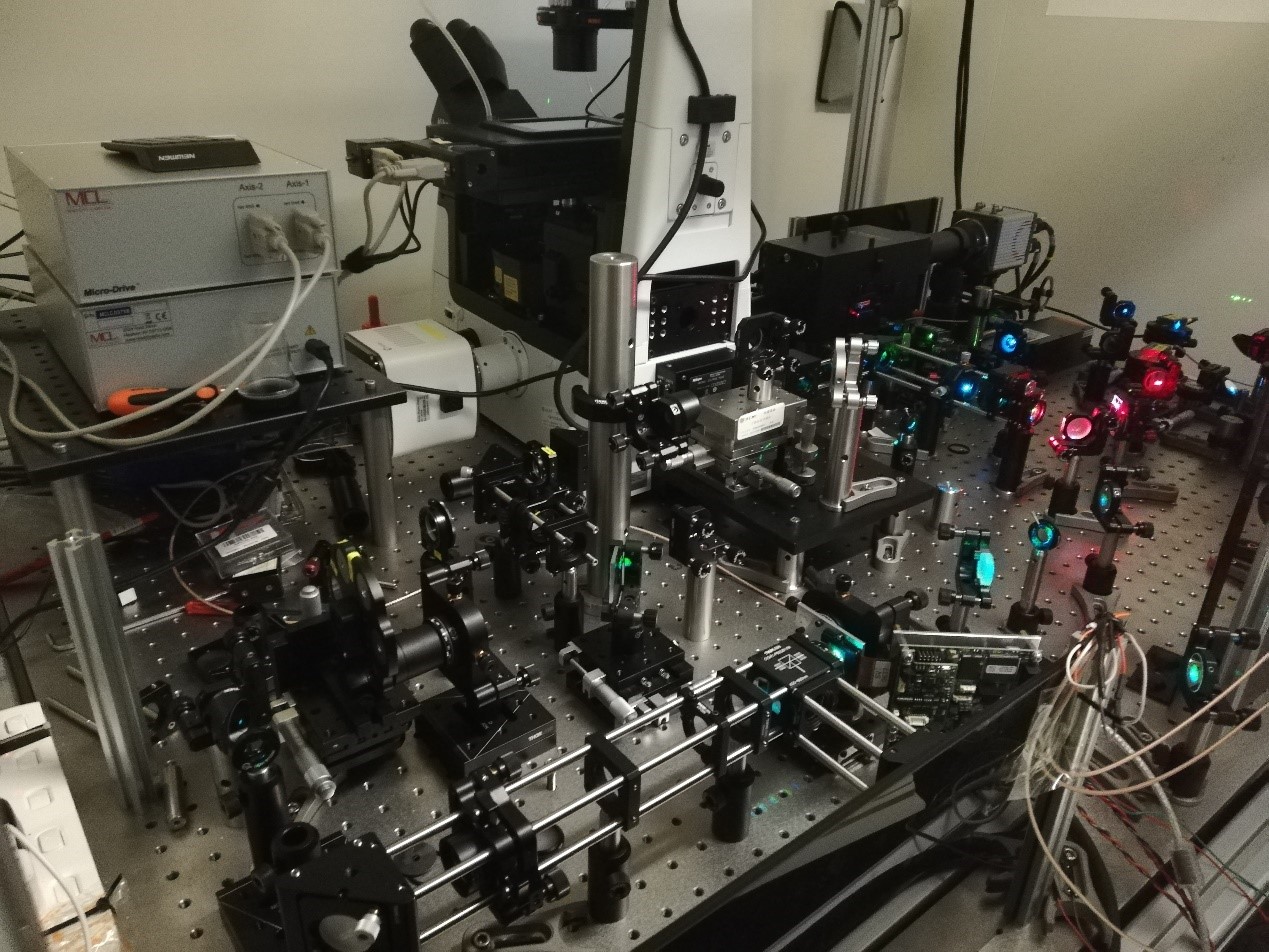
Peng Xi Laboratory constructed a polarization structured illumination microscope.
Meiqi Li and Yaning Li not only made academic progress in mutual exploration and encouragement throughout the project, but they also developed a high level of tacit understanding in the work. The two students attended the "Challenge Cup" publicity meeting in the building of School of Engineering in November 2019, and they signed up with the intention of giving it their best. They performed data sorting and a roughly 20,000-word interim report through online communication during the COVID-19 epidemic period, and they deliberated every word in composing the final article. Finally, in May of this year, they successfully entered the competition first prize and special prize selection. Joy and pressure arrived at the same moment. Faced with a school-level defense, they meticulously created promotional films and defense PowerPoint presentations, eventually standing out among the 68 teams in the school-level evaluation and winning the special prize.
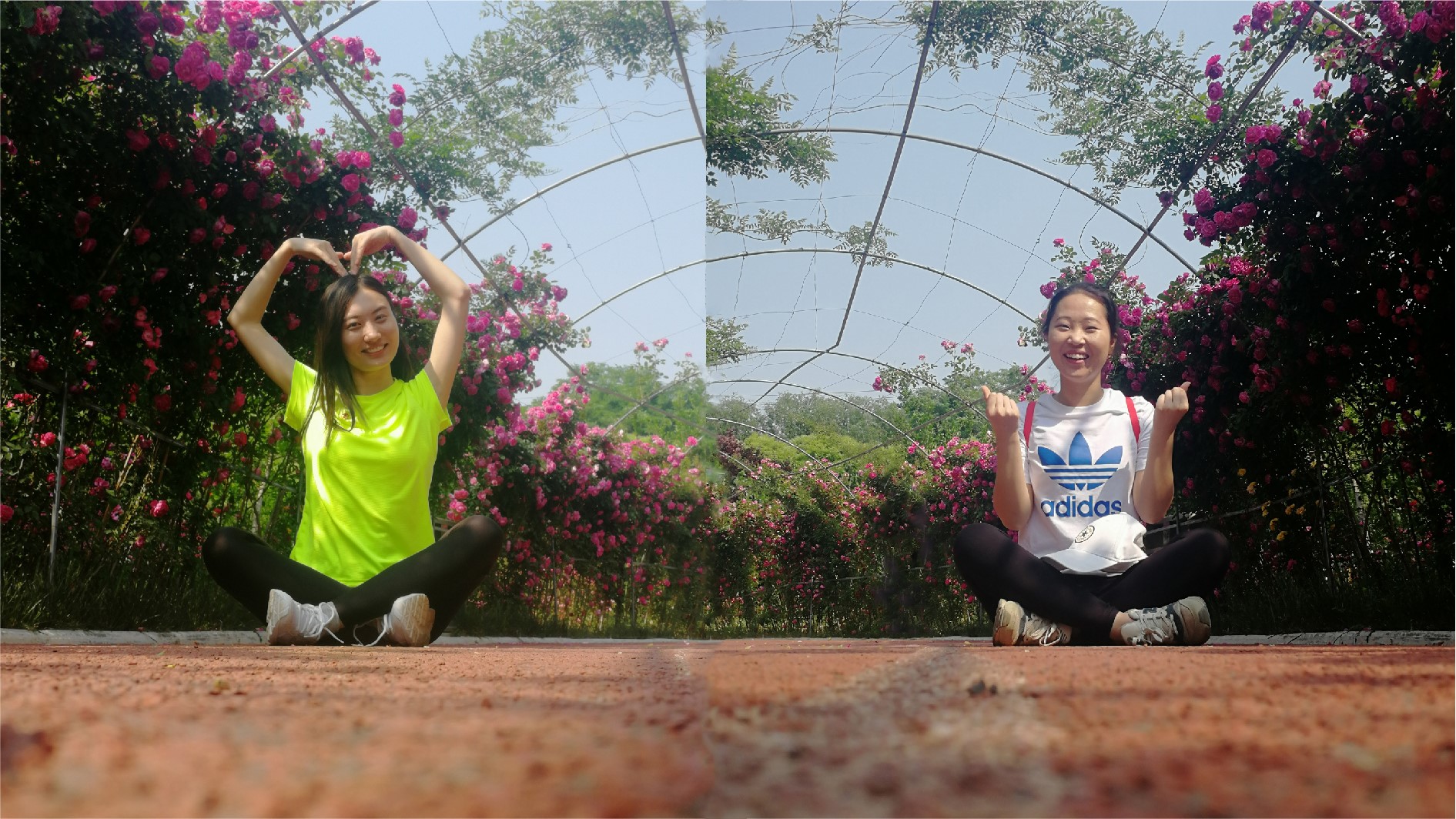
Meiqi Li and Yaning Li.
Professor Peng Xi, the project's advisor, provided the full guidance, while Hao Zhang, a postdoctoral fellow in the research group, provided considerable support and assistance in the process of completing and applying the work, according to Meiqi Li and Yaning Li. In the face of the honor, Meiqi Li and Yaning Li said that they were honored to receive recognition for the institution and that they would continue to be down-to-earth and pursue excellence in the following scientific research and life.
About the Challenge Cup:
The "Challenge Cup" competition series of Peking University is the largest, most authoritative, and most influential extracurricular academic research activity for students in the university. The competitions cover a wide range of fields with a strong academic focus. The competition, which has now been organized 27 times, not only encourages and fosters the development of students' scientific research activities, but also serves as a platform for students to showcase their talents and becomes a main focus of the university. The "Challenge Cup" competition series consist of three categories of competitions, including the May 4th Youth Science Award Competition, the Interdisciplinary Student Extracurricular Academic Science and Technology Work Competition, and the Special Contribution Award competition.
In the twenty-seventh session "Challenge Cup", 15 special prizes, 39 first prizes, 45 second prizes, and 71 third prizes were awarded in the May 4th Youth Science Award selection. 1 special prize, 3 first prizes, 5 second prizes, and 9 third prizes were awarded in the interdisciplinary competition selection. 2 special prizes, 7 first prizes, 8 second prizes, 17 third prizes, and 46 excellence awards were given out in the exceptional contribution award selection.

